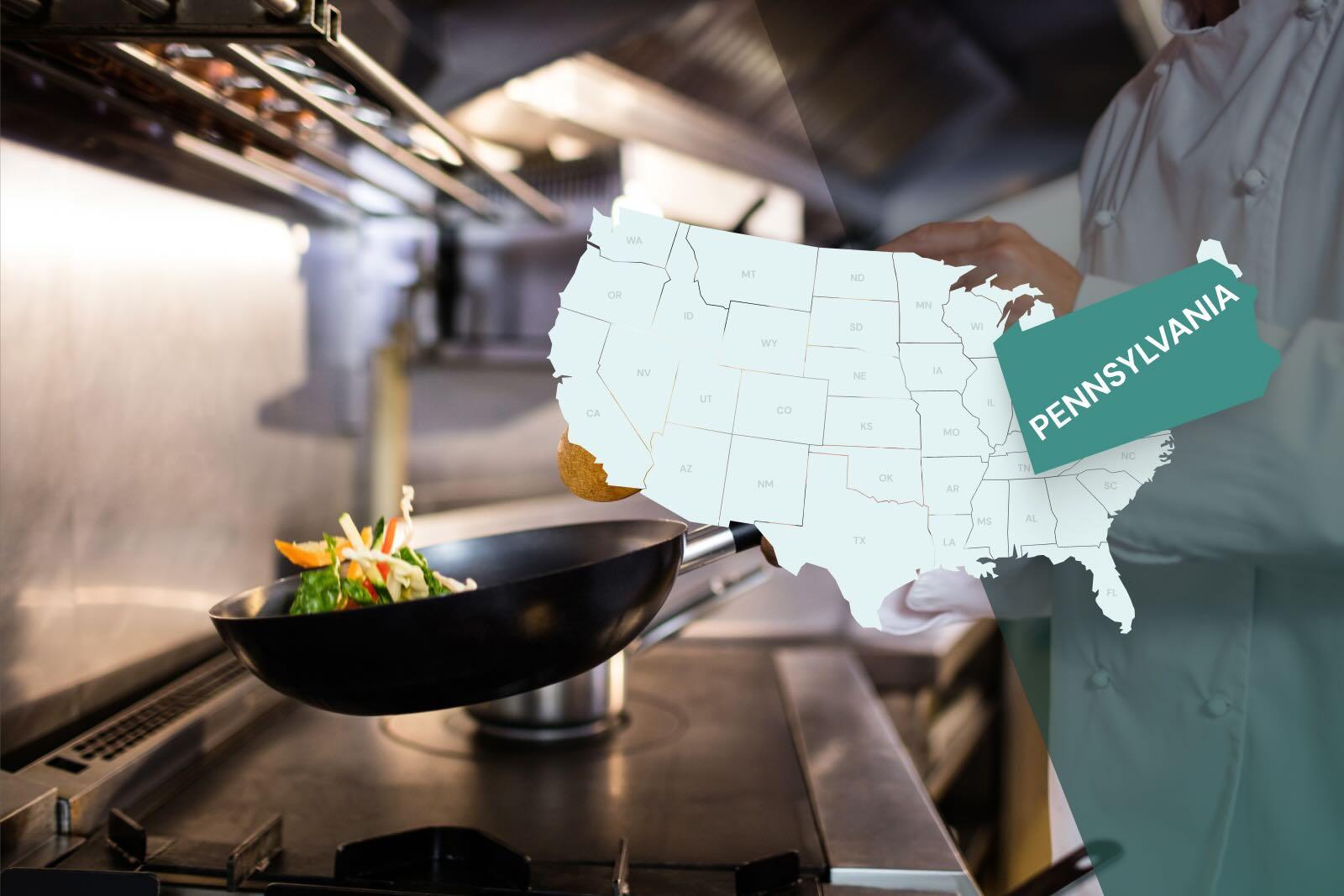Pennsylvania, home to the iconic Philly cheesesteak and the birthplace of Hershey’s chocolate bars, is often considered one of the greatest snack food states in the country. However, none of Pennsylvania’s fan-favorite foods would receive the accolades they deserve without the state’s food industry's commitment to food safety.
Food safety can make or break a food business, especially since the U.S. Centers for Disease Control (CDC) estimates that eight million people in the United States get sick each year from foodborne illnesses.
The Pennsylvania Department of Agriculture’s Bureau of Food Safety and Laboratory Services works hard to educate, regulate, and ensure food businesses comply with food safety laws. If you work in Pennsylvania’s food industry, it is important to know what training or certifications you are required to maintain.
Read on to learn about Pennsylvania’s food safety regulations, including:
Which version of the FDA Food Code does Pennsylvania use?
Does Pennsylvania require food handler training?
Does Pennsylvania require allergen awareness training?
Does Pennsylvania require food manager certification?
How do requirements differ from county to county in Pennsylvania?
Which Version of the FDA Food Code does Pennsylvania use?
The U.S. Food and Drug Administration (FDA) maintains the federal Food Code, which is a model for all fifty states. Each state, as well as cities and counties, is free to either fully or partially adopt the FDA’s Food Code or develop unique regulations.
As food safety science evolves, so do the rules and regulations. The FDA rolls out a new version of the Food Code every four years. They released the most recent edition in 2022, along with a supplemental update in November of 2024.1
As surprising as it may seem, Pennsylvania is one of the few states always to adopt the most recent version of the FDA Food Code–which means the state currently uses the 2022 FDA Food Code.2,3
Read on to learn what the 2022 FDA Food Code, and thus the Pennsylvania Department of Agriculture’s Food Code, requires regarding training and certification.
Does Pennsylvania require food handler training?
No, food handler certificate training is not required in Pennsylvania. However, food handler training is an easy way to demonstrate proactive responsibility to hiring managers or make it easier to get acclimated to working in a food environment.
Does Pennsylvania require allergen awareness training?
No, formal food allergen awareness training is not required in Pennsylvania.
However, a person in charge on each shift must be able to demonstrate allergen awareness to a health inspector, and managers are responsible for teaching their staff about food allergies and preventing allergic reactions.
Does Pennsylvania require food manager certification?
Yes, the Food Employee Certification Act requires most foodservice establishments in Pennsylvania to have at least one person in charge on staff who has earned a food manager certification. They must be immediately accessible during all hours of operation.4,5
Credentials from an accredited food manager certification program are typically valid for five years. Once you’ve earned your certification, it’s a good idea to put a reminder on your calendar to renew ahead of the expiration date!
There are five types of establishments that are not required to have a certified food manager on staff (even though it is still recommended!), including:
-
facilities where only prepackaged foods are handled and sold;
-
those that handle only non-TCS foods;
-
all food manufacturing facilities;
-
tax-exempt facilities; and
-
nonprofits.6
How do requirements differ from county to county in Pennsylvania?
Establishments throughout Pennsylvania must meet the Department of Agriculture’s food manager certification requirement. However, as mentioned earlier, counties and cities can adjust and add to statewide rules.
For example, Bucks County requires any facility preparing TCS foods to have a certified food safety manager onsite during all hours of operation. Before serving as an establishment's onsite certified food safety manager, managers must apply to be an official Bucks County Certified Food Safety Manager.7
Chester and Montgomery Counties and the City of Philadelphia also require managers to apply for certificates from their local health departments to ensure reciprocity and approval of the ANAB-accredited provider of food manager certification.8,9,10
Additionally, managers in Philadelphia must complete an approved food safety training course before they can apply for an official certificate from the Department of Health’s Environmental Health Services.
The takeaway
By implementing the latest FDA Food Code and requiring managers to earn food safety certifications, Pennsylvania is an excellent example of a state that takes food safety seriously. Whether you’re an operator, manager, or food handler, staying informed of your state’s certification and training requirements–and implementing any new or different food safety best practices–will help you protect your customers, stay in compliance, and support the success of your establishment and career.
Sources:
-
FDA: 2022 Food Code
-
Pennsylvania Department of Agriculture: PDA Notice
-
Pennsylvania Code: Chapter 46. Food Safety
-
The Commonwealth of Pennsylvania: Food Safety
-
The Commonwealth of Pennsylvania: Food Employee Certification
-
Bucks County: Certified Food Protection Manager
-
Chester County: Certified Food Protection Manager
-
Montgomery County: Certified Food Protection Manager
-
City of Philadelphia: Instructions and application form for food safety certification





.png)

.png)
